Trump’s Electoral College Problem
Based on his job approval numbers, President Trump could face an uphill battle in 2020.
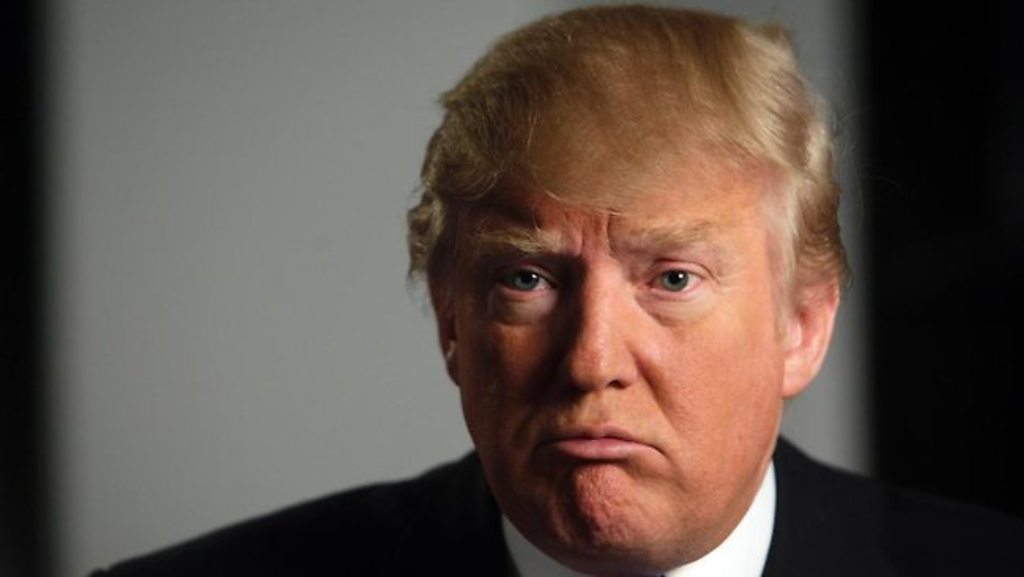
A new Gallup poll shows that President Trump’s job approval is above 50% in only 17 states totaling just 102 Electoral Votes:
WASHINGTON, D.C. — President Donald Trump’s job approval rating varied widely across the U.S. states in 2018, with 17 states giving him ratings of 50% or higher, and 16 states giving him ratings below 40%. The states most approving of Trump were generally in the South and Mountain West areas of the country, while he fared most poorly in New England and on the West Coast.
In 2017, Trump had approval of 50% or higher in 12 states — five fewer than in 2018 — and approval below 40% in 17 states — one more than in 2018. Those shifts reflect the modest improvement this past year in his approval ratings nationally, from 38% in 2017 to 40% in 2018.
The five states that moved to 50% or higher job approval last year were Missouri, Kansas, South Carolina, Mississippi and Utah.
Results are based on combined data from the 2018 Gallup tracking poll, encompassing interviews with more than 73,000 U.S. adults, including 500 or more in 38 states and 1,000 or more in 27 states. Each state sample has been weighted to match the demographic characteristics of that state’s population to ensure it is representative of the state’s residents. Full data for all 50 states are shown at the end of the article.
Although much can change between now and Election Day 2020, a job approval rating of 50% or higher would presumably put Trump in good position to win a state in the presidential election. The 17 states with 50%+ approval ratings account for a combined total of 102 electoral votes. In contrast, the states in which Trump has an approval rating below 40% account for 201 electoral votes.
In order to get to the 270 electoral votes needed to win the presidency, Trump would have to win all but one or two of the states in which his 2018 approval rating was between 41% and 49%. Some of the more challenging states to win from among this group, based on that approval rating, would be Texas (41%); Pennsylvania, Wisconsin and Michigan (all at 42%); and Arizona and Florida (43%). Trump won all of those states in 2016, and thus it is certainly possible that he can do so again. But he clearly has a lot of ground to make up in those states to get close enough to 50% that he can finish with more electoral votes nationwide than the Democratic candidate.
CNN’s Chris Cillizza looks at these numbers and sees trouble for Trump, as does The Washington Post’s Philip Bump, who also notes signs of potential problems in Texas of all places. They’re both right. The states in which Trump’s job approval stands above 50% constitute 102 Electoral Votes and are depicted on the map below in dark green, with the second darkest shade of green being those states where his job approval stands between 40% and 49%, these states constitute 229 Electoral Votes and consist of states that Trump is likely to win notwithstanding his current job approval such as Texas, Nebraska, Indiana, and Louisiana. Giving Trump these states gives Trump another 54 Electoral Votes. It also includes two states — Virginia, Oregon, and Nevada — comprising 26 Electoral Votes which will most likely stay blue. On the lowest end are the 18 states in light green where Trump’s job approval is below 40%. These are mostly solid blue states and constitute 207 Electoral Votes. This leaves roughly nine states where Trump’s job approval is between 40% and 49% that are possible battleground states in 2020, including Nevada, Arizona, Wisconsin, Michigan, Ohio, Pennsylvania, North Carolina, Georgia, and Florida which comprise 147 Electoral Votes.
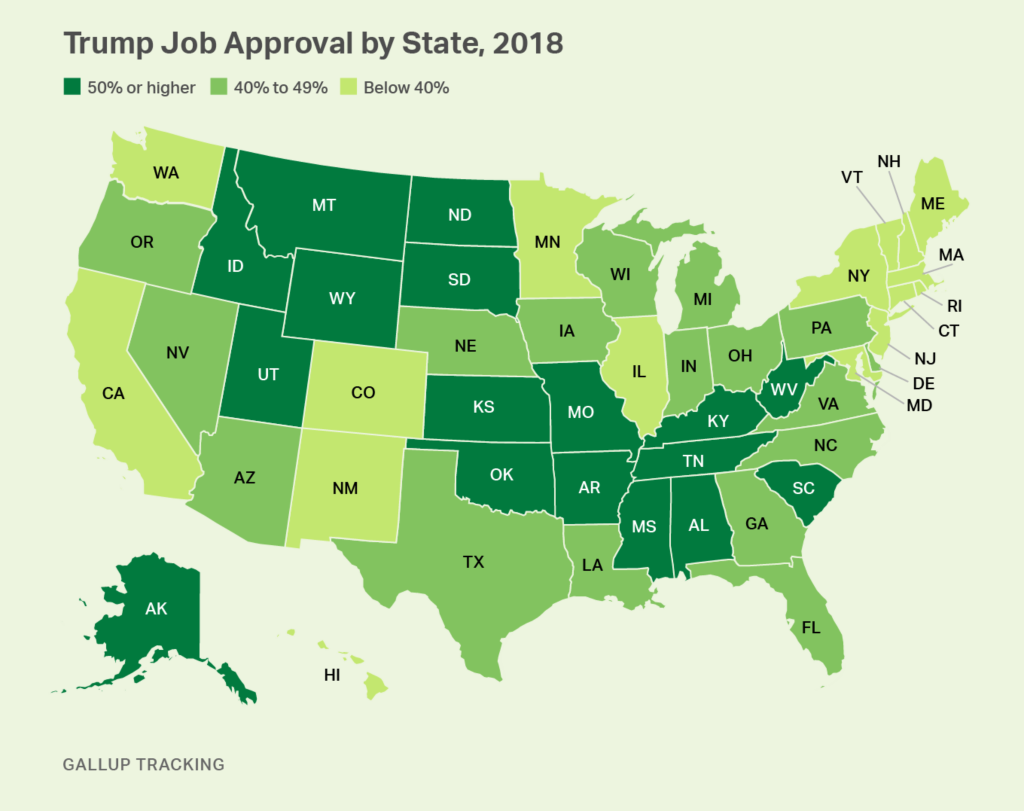
The most important of these battleground states, obviously, will be the midwestern states where Trump was able to pull off wins that had evaded Republicans in the 2008 and 2012 elections, and in some cases long before that. This includes Iowa, Wisconsin, Ohio, Pennsylvania, and Michigan. Taken by themselves, these states comprise 70 Electoral Votes, Other states that are likely to be battlegrounds include Arizona. Georgia, North Carolina, and Florida. President Trump also won all of these states in 2016, but the fact that his job approval stands below 50% in each of them is an indication that he could have his work cut out for him if he’s going to win them again in 2020.
Obviously, it’s far too early to make any forecasts based on this data, and it’s certainly possible that the President’s job approval numbers could change between now and the time closer to the election. In the end, though, the 2020 election is going to be a referendum on the Trump Presidency, as is always the case when a President is running for re-election. That’s why Trump’s job approval in these states matters, and why it matters that his nationwide job approval, as measured by RealClearPolitics and FiveThirtyEight, stands at historic lows for a sitting President, and this is despite the fact that the economy is in generally good shape and the state of the world is generally quiet. If that changes, then Trump is going to find himself in trouble no matter how much he tries to demonize the opposition.
Obviously, it’s far too early in the 2020 cycle to make anything resembling a reliable prediction about the outcome of the election. There are so many factors that could impact what happens on November 3rd, 2020, including the state of the economy, the Russia investigation and other investigations involving the Trump Administration, and foreign policy crises that could develop between now and them, that making judgments about then based on poll numbers now is really nothing more than guesswork combined in many cases with wishful thinking. That being said, these numbers ought to concern the President, his campaign, and his party. Contrary to what the President likes to think, his win in 2020 was nowhere close to a landslide. He lost the Popular Vote, one of only five Presidents to have done so and nonetheless won the Presidency, and his Electoral College win was among the bottom 15 in American history, ranking just above John F. Kennedy’s narrow win over Richard Nixon in 1960. But for 77,741 votes in three states in the Midwest, he would not be President today. Given that, even incremental change in the Presidents popularity and job approval could have a big impact on the outcome of an election. As is always the case, we’ll see how it turns out in just over 20 months.

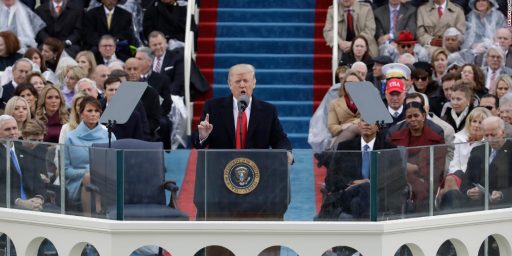
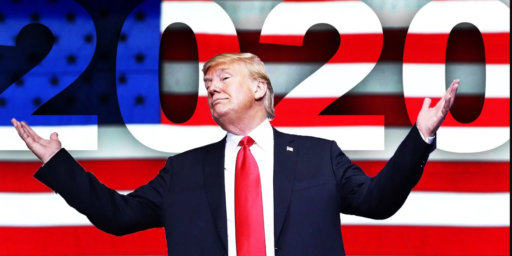
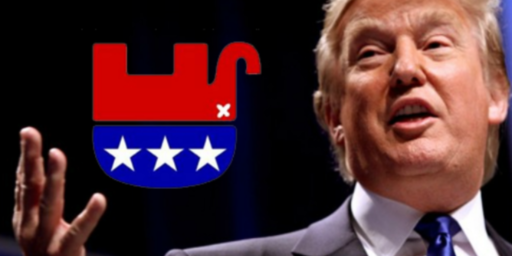
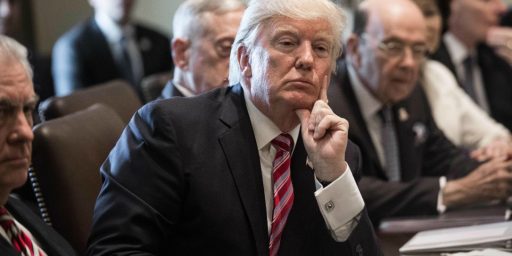
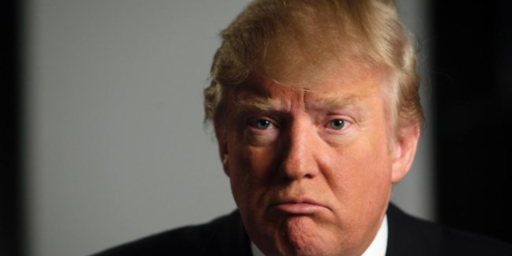
Trump’s whole election approach is to try to ensure you hate the other candidate more than him. Honestly, from what I’ve read, this is his approach to business and life.
Which means that poor approval ratings don’t mean that much, I’m sorry to say.
I would argue he’s not president today. He won the election, he’s got the title, he’s got the office, he’s got the plane, but he remains an ignorant blowhard who, at best, has a dim notion of what he’s doing.
Calling him president is akin to plucking a random person off the street, giving them a white robe, a stethoscope and an office at a hospital, calling them “Doctor,” and letting them perform surgery.
@Kathy: A pretend surgeon could only kill a few people before someone stepped in. Trump has the potential for far worse. I see nuclear India and nuclear Pakistan are playing tit-for-tat again. Perhaps without a steadying hand from the U. S., unless some of the old hands are acting while Trump’s away.
I often steal Charlie Pierce’s habit of writing “President*”, like a doped up home run hitter in the baseball stats.
@Jay L Gischer:
Which is why we’re in for two years of “soshlist” and “bortion”. They got nuthin else. Except money. Lots of money.
Here in Florida, where there are 29 electoral votes, Trump won by 112,911 votes. A few months ago Florida voters voted to reenfranchise 1.2 million people with felony convictions who had been prevented from voting, a majority of them African-Americans. According to the Miami herald, the demographics of those 1.2 million former felons are
So you know how Florida used to be a swing state? Well I’ve got some bad news Mr. Dennison….
I’m interested on how the National Popular Vote Interstate Compact may impact the election. Eleven states have already approved the agreement to pool their electoral votes based on the national outcome, not each state’s. Colorado has passed legislation to join and the governor said he will sign it. Fourteen other states have the proposal on their agendas. If it’s legal it makes voting a majority decision not a state decision.
@Mr. Prosser: don’t you expect some conservative States will refuse to play along? If it weren’t for the distortion of the electoral college, we wouldn’t have had a Republican president since 1992.
(Which makes it especially insane that for the rest of my life we’ll possibly have a conservative Supreme Court. Unless Democrats decide to correct for Merrick Garland by adding two more justices to the court, which I would totally support.)
@Teve:
I expect all conservative states to refuse to sing onto the Compact. Until a Democrat wins the presidency while losing the popular vote by even one vote.
On other things, I wonder what El Cheeto’s approval rating would be if he 1) left the press alone, 2) wasn’t mean towards everyone who disagrees with him, 3) didn’t try to aggrandize himself with every action, even insignificant and trivial ones, 4) tried to at least reach out to people who didn’t vote for him, 5) did not pretend the world started the day he took office, 6) generally acted like a decent person (yes, I know that contradicts the premise of “Trump”).
@Kathy: The theory behind the compact is that that states with the most incentive for joining would be both solid-blue and solid-red states, because those are the ones that get ignored the most as a result of the EC; it’s the swing states that have the most to lose from the compact, because the EC gives them disproportionate power.
At least that’s the theory.
@Kylopod:
I agree that’s the theory.
The practice for solid red states, I think, goes like this: “We’d have lost Bush and Trump! We may not have elected anyone president since 1988!”
@Kylopod:
I checked, the eleven states that have signed are all blue, WA gave 52.5% to Hillary, the lowest of the eleven.
I think Trump is going to be harder to beat than a lot of these arguments suggest. Between the cult of personality and the fact that we won’t be running a generic Democrat, it’s really possible he will get a second term.
Or he will implode suddenly when people realize what a fraud he is.
(There’s a song in a musical that rhymes “fraud he is” with … something. And now I have just the “fraud he is” stuck in my head, to some tune)
If we could run “one of the following five Democrats, to be determined by drawing lots after the election”, I think we would kick ass. Technically, the electoral college would allow this.
@Gustopher: (Not a musical, it was “Oor Hamlet”, also known as “Three Minute Hamlet”, and “fraud he is” rhymed with “Claudius”
http://www.thebards.net/music/text/OorHamlet.txt
John Wesley Harding used to perform it live.
Ok, I feel better now. A whole song running through my head is so much better than three words)
@Kathy: @gVOR08: I’ve been following the compact for years. It was started in 2006, when there was only one EC/popular split in fresh memory, and at that point the people behind the project could at least talk themselves into the idea that it held potential appeal to Republicans. Maybe they thought the 2004 election showed that the advantage had shifted to the Dems despite Kerry’s loss (he was 118,000 votes in Ohio away from winning despite trailing nationally by more than 3 million), and that could help them convince Republicans they wouldn’t always benefit from the system. In 2012 there was a period of weeks where Romney appeared to be leading nationally but trailing in the states he needed. “Time to eliminate the Electoral College?” went an article on Fox News’ website the day before the election. The EC is a “disaster for democracy,” Trump tweeted on Election Night.
Of course if the Republicans were to find themselves on the receiving end of an EC debacle, things might change. But until that actually happens, they seem to shrug off these could-have-beens quite easily. Even well before 2016, supporting the EC was becoming baked into the worldview of many conservatives. It seems one of a range of issues, from gerrymandering to voter-ID laws, where they’ve spent years structuring arguments in support of electoral policies that somehow always lead to results they favor. “The US is a republic, not a democracy” is mostly a right-wing chestnut at this point. They don’t want to make elections more representative when their demographic base gets all its power from the status quo.
@Gustopher:
I absolutely agree.
If such predictions were accurate, Trump wouldn’t be in the white house today.
@Eric Florack: You are missing the meaning of the data.
The favorability polling is not predictive of who will win. Trump could have a favorability of 27%, but be running against a candidate who promises to literally destroy the world by triggering a nuclear holocaust — Trump would, presumably, win that campaign.
@Eric Florack: Still waiting for you to show me the FBI report on anti-conservative hate crimes you referred to.
I’ve given you an answer on that, but somebody’s going to have to step in and drag it out of the spam bucket.
That picture–still makes Trump look like a chicken who’s gone through a spin-dryer.
@Kylopod:
1-) Unless Democrats improve their share of the rural vote – and they improve a lot – the EC will favor the GOP.
2-) More than the GOP the problem would be opposition from the small states(Even states like Wyoming or Idaho) and few large states that happens to be a swing state(Florida) or that might be a swing state one day(Texas). Small states like the EC because they have a path to political relevance, even if it does not benefit them as today.
@Andre Kenji de Sousa:
That’s the conventional wisdom, but Nate Silver–who was probably the first major pundit to notice that Trump had an EC advantage–argued in 2012 that the advantage lay with Obama. As mentioned, there was a period where polls seemed to suggest Romney was winning the popular vote but trailing in the states he needed. This was mostly forgotten after Obama ended up winning both the popular vote and EC by a decisive margin. But if you look closely at the way the votes were distributed, it does seem that Romney was closer to winning the popular vote than the EC. To win the latter, he would have had to flip four states, including at least one that Obama won by more than 5 points. Yet Obama’s national lead was only 3.9 points. That suggests that (as Silver argued) if the popular vote had shifted to a narrow Romney lead, he would have been strongly in danger of losing the EC.